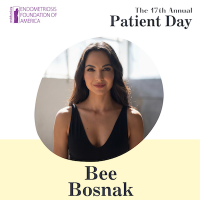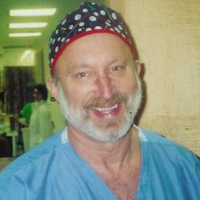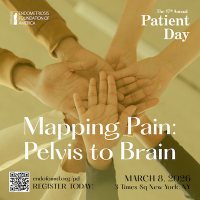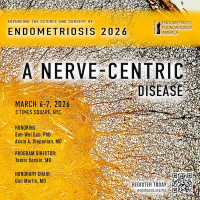Why is endometriosis so important to talk about? This disease affects 176 million women and girls around the world – that is one in five. The costs of this disease are 110 billion dollars each year. This is not an isolated illness that just disproportionately affects a few women and girls; this is a disease that affects all of us. It affects me, it affects you, it affects partners, parents, teachers, nurses, doctors, loved ones, friends and businesses.
Businesses lose billions each year because of lost productivity. The average aggregated data shows that the average woman loses 11 days a month because of endometriosis pain in one study. It is a major crisis of women’s health; it has not yet received its due.
Our mission, as the Endometriosis Foundation of America is, of course, to change this. We aim to bring endometriosis to the level of state of the art care. We need to promote, we do not want to, we need to promote early intervention and effective and proven treatments. The average delay in diagnosis for an endometriosis patient is ten years, still, today, almost 2012. Studies have shown that 70 percent of teens who present with pelvic pain early in youth later go on to be diagnosed with endometriosis. We have to stop this. This disease leads to severely advanced fibrotic disease causing chronic pain, infertility, sexual dysfunction, bladder and bowel problems and incredibly poor quality of life. If we educate girls early on about what is normal and what is not and we empower them to get the answers about their own health that they need, we can stop this cycle. We can stop late diagnoses, ineffective surgeries and treatments that do not work and might be harmful in some cases, we can stop unnecessary hysterectomies. Endometriosis accounts for nearly half of the 600,000 hysterectomies performed annually. It is not a cure for this disease and sometimes it does not help, so it is very inappropriate to just jump to hysterectomy as the first line of treatment. We need to stop this. And that is why we are here today.
We live in a culture of menstrual misinformation. We think because we are women and girls that it is our lot in life to suffer. It isn’t. We need to be empowered to break through the societal taboos. Talk about our periods, talk about what is normal, talk about what is not. Dispel the myths and empower our young women because we need to stop the daughters of tomorrow from suffering as the women of today have.
We ask each of you to join us in our mission. You are doing that by being here today, and again, we really want to thank you. Before I bring up our first speaker, I do want to again point out our speakers today. We have Lennox Hill’s own Dr. Tamer Seckin, who is our founder and president. He is one of world’s leading advanced laparoendoscopic surgeons. Donna Cardillo, dear Donna, nurse guru, she is here with us. Wendy Winner, probably the best known endometriosis nurse in the world, an RNFA, and a real trail blazer. Phyllis Yezzo, our Chief Nursing Executive Officer of Lennox Hill Hospital. And, of course, Vijaya Lakshmi, who is a very special guest today. Vijaya is an RN-MPH and more importantly perhaps, Padma’s mom, so we really want to thank you for being with us today. This is really special. And, of course, Padma herself who will give some remarks today that will really drive home the point much better than I have.
Without further ado, I would l like to introduce and bring up Phyllis Yezzo, Chief Nursing Officer of Lennox Hill Hospital. Phyllis oversees nursing practice and is partnered to lead our frontline nurses. Welcome Phyllis.









